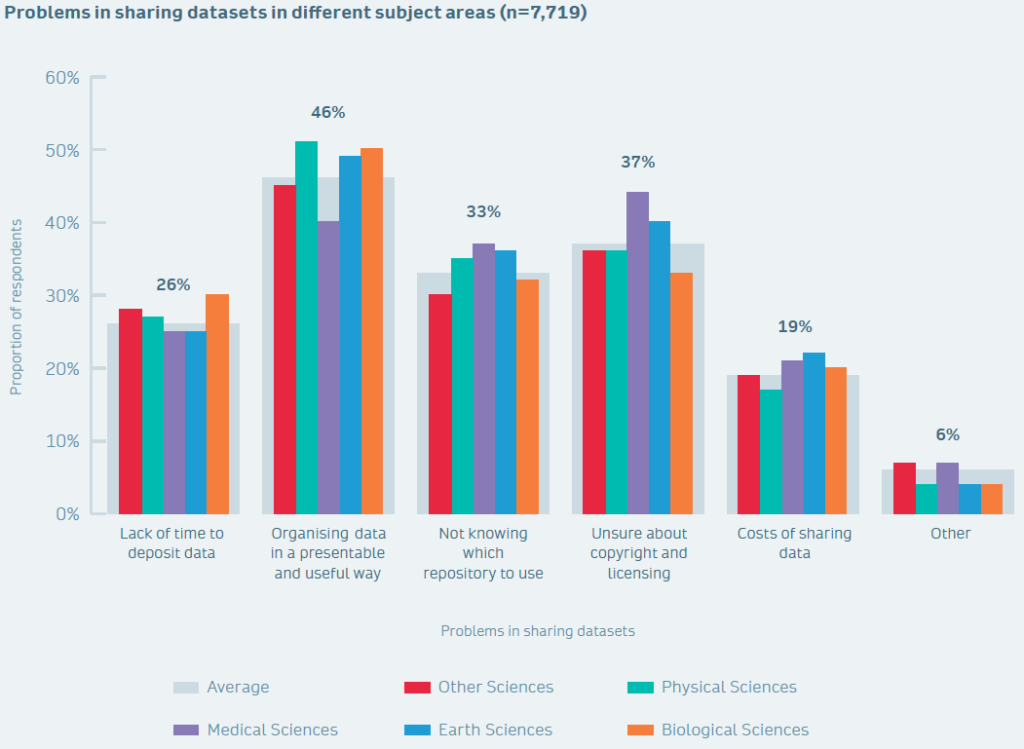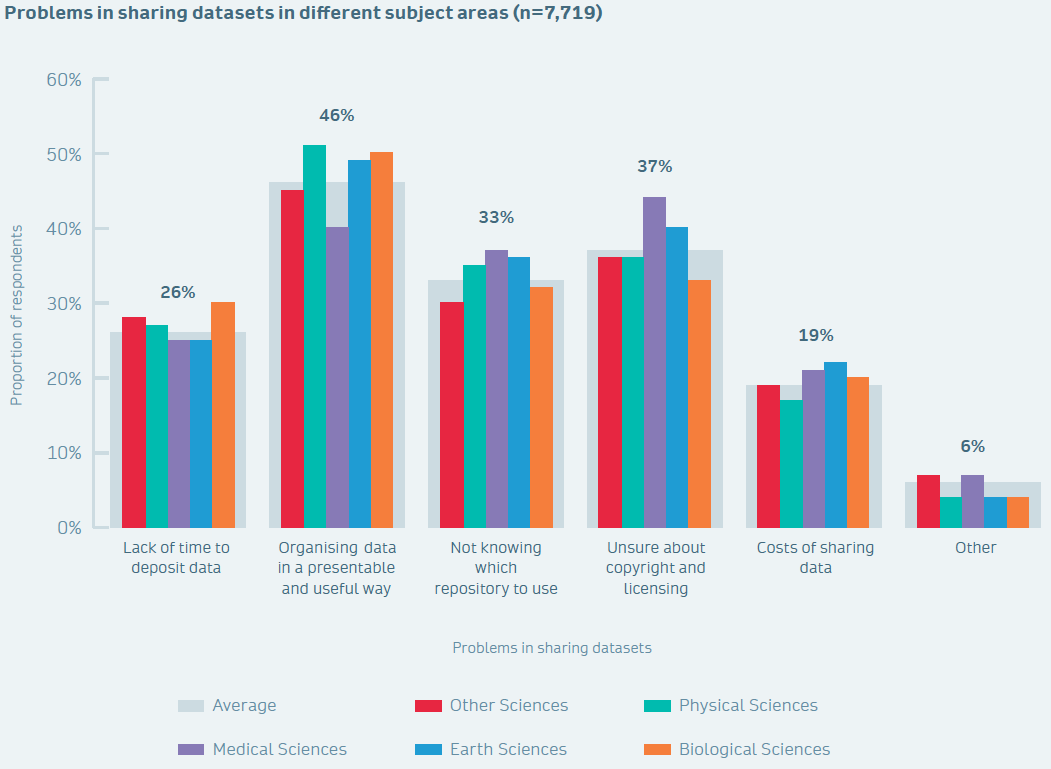OPEN SCIENCE
Springer Nature’s white paper and survey of 11,000 researchers proposes five essential factors to accelerate data sharing: a clear policy, better credit mechanisms, explicit funding for sharing, practical help in implementing, and training and education.
A Center for Open Science survey aims to understand how researchers assess the quality of preprints, and what the barriers are to a broader adoption of preprints.
PUBLISHING
Subscriptions for open access. Ann Michael’s post about a trial at Annual Reviews journals where institutions will continue to pay subscriptions, but the content will be open access. It will require almost all existing subscribers to participate, and non-subscribing institutions with significant downloads of the free content will be invited to become subscribers, too. As these journals do not publish many review articles, this appears to be a possible option for transitioning to open access publishing. Chances are this will be successful, because for research articles the Open Library of the Humanities has already successfully pioneered a similar model.
OMICS has been ordered in court to pay a $50M fine. The fine is calculated by using OMICS’ gross revenue during the period covered, minus refunds paid back previously. The US Federal Trade Commission has alleged that “Defendants engaged in unfair and deceptive practices with respect to the publication of online academic journals and organization of scientific conferences.” In the judgement, the Court agrees and also finds that “a permanent injunction against Defendants is appropriate under the circumstances to enjoin them from engaging in similar misleading and deceptive activities. Here, Defendants did not participate in an isolated, discrete incident of deceptive publishing, but rather sustained and continuous conduct over the course of years.” The injunction permanently prevents the defendants from engaging in similar practices going forward. OMICS intends to appeal the decision.
A study finds that at least 152 scientific journals have been reverse-flipped from open access to subscription publishing since 2005. This occurs across the industry. For large publishers: 41 of these 152 journals are currently published by Springer Nature, 34 by Elsevier, 12 by Taylor & Francis. Study published in Publications.
RESEARCH
Science’s troubling historical associations with the slave trade are documented in a news feature in Science. Many plant and animal collections in the 1700s were only possible through the use of slave trade ships to collect and return the specimens. These collections, for example of James Petiver and Hans Sloane, include important type specimens that define entire species. This historical legacy and connection with the slave trade is neither widely known nor acknowledged.
Candida auris is a fungal infection affecting mainly the weak and those with compromised health. It is resistant to all antifungal medications, adding to the worries of antibiotic-resisting bacteria. As the New York Times reports, hospitals have largely kept quiet about this problem.
EVENTS
The eLife Innovation Sprint 2019 is taking place in Cambridge, UK on September 4 – 5, 2019.
The 2nd Open Science FAIR Conference (OSFAIR 2019) is taking place in Porto, Portugal on September 16 – 18, 2019.

Problems identified by researchers against a better sharing of data.
Credit (CC-BY): Lucraft, Mithu; Baynes, Grace; Allin, Katie; Hrynaszkiewicz, Iain; Khodiyar, Varsha (2019): Five Essential Factors for Data Sharing. figshare.
